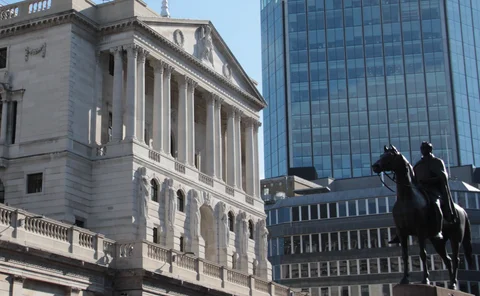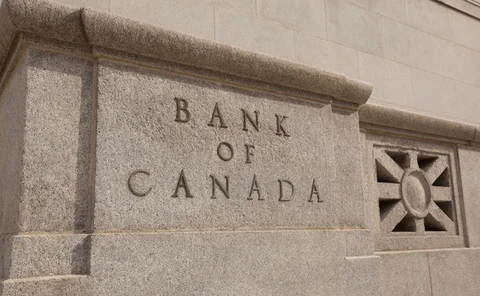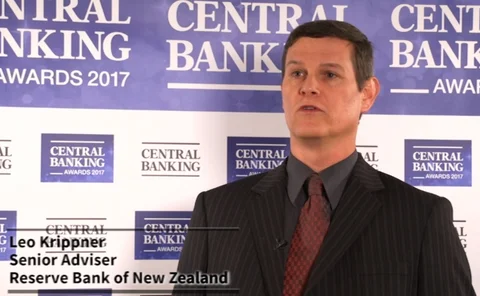Economic modelling
BoE economists issue ‘call to arms’ for macro-prudential research
Researchers outline a simple framework to help understand the macro-prudential “balancing act”, but say there is a long way to go in developing a definitive model
BoE paper warns escape from secular stagnation may ‘beggar thy self’
Authors outline an unappealing situation where the only escape comes from currency depreciation, but may nevertheless end up harming domestic welfare
BoE economists criticise DSGE inflation modelling
Team including MPC member Kristin Forbes criticises structural modelling approaches for failing to properly account for trend inflation
IMF economist builds agent-based banking system model
Model captures the diversity of agents and the use of rules of thumb; the author says the modular nature allows “straightforward” enhancements
Central banks should test robustness of their main macro models – paper
Bank of Canada paper says users of large-scale macroeconomic models should develop tools to assess whether non-linearities could be distorting results
Fed paper warns on helicopter money risks
Tool appears much less powerful when less realistic elements of the New Keynesian framework are removed; other options could work better, authors say
Authors struggle to cut ‘price puzzle’ from Australian data
Authors find various approaches to removing the puzzle from VAR models fail for Australian data, calling into question the usefulness of the models
RBNZ’s Krippner: term structure models can make for better policy
Central bank economist talks about his work on modelling monetary policy at the zero lower bound, and what comes next
Type of uncertainty matters for modelling – Norges Bank paper
Author develops method to “disentangle” various forms of uncertainty, finding they can have good and bad effects
Brazil can no longer rely on consumption for growth – paper
IMF paper highlights need for Brazil to switch to investment-led growth model as infrastructure caps threaten productivity and competitiveness
BoE paper: ‘imperfect common knowledge’ implies Taylor principle need not hold
It is not strictly necessary for a central bank to respond to temporary deviations of the economy from trend, paper finds; result challenges findings such as ‘Neo Fisherism’
Scrap micro-foundations to repair macroeconomics – Steve Keen
Professor says economy should be viewed as a dynamic system with credit playing a crucial role, arguing we should ditch models such as DSGE
RBA paper assesses FOMC’s forecasting performance
RBA and Fed economists collaborate on study of forecasting errors by the Federal Open Market Committee
Fed’s Fischer: econometric models are still flawed
US Fed vice-chair says models still cannot capture the complexities and rapid evolution of the economy – despite his hopes as an undergraduate
Fed paper flags risk of low rates misallocating capital
Where firms rely heavily on intangible capital, lower rates could harm firms’ investment and contribute to secular stagnation, economists warn
Poloz considers the future of economic modelling
Theoretical and empirical two-pronged approach likely to stay, governor says, though economists are still on the hunt for the “holy grail” single model
RBNZ paper sheds light on core macro model
'NZSIM' is a semi-structural model, with a DSGE core augmented with a handful of additional equations
Riksbank early warning indicator signals high risks
New measure of financial fragility performs better than credit gap method, economists say; current readings suggest risks are on a par with 2008
BoE article sees benefits to agent-based modelling
“Bottom-up” approach is complementary to models that are already widely used; the Bank of England has created new models for both housing and corporate bond markets
BIS economists model benefits of leaning against the wind
Endogenous model of financial crises points to benefits of using monetary policy to lean against financial imbalances, in contrast to many other studies
Researcher uses dynamic factor model for ‘nowcasting’
Research makes three additions to widely-used model
Changing policy impact may knock forecasts askew – Riksbank economists
Economists suggest systematic errors of forecasts in recent years may reflect changes in the effectiveness of monetary policy
Poloz urges economists to create new economic models
The rise of the service sector has changed the way productivity and output can be calculated, the Canadian governor says, musing on whether the relationship between inflation and growth could change over time
Colombian paper models non-linearity in sovereign risk
Model of real exchange rates seeks to capture the non-linear effects of sovereign risk for Latin American countries






















